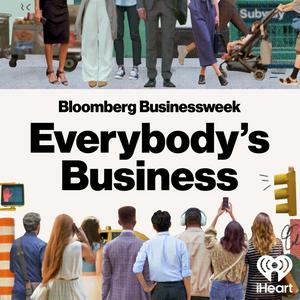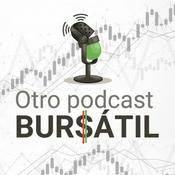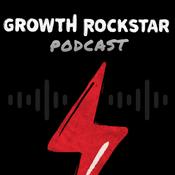41 episodios
- In the midst of sub-freezing temperatures in Minneapolis, conflict is heating up between residents and US Immigration and Customs Enforcement. Meanwhile, a similar battle is brewing between Senate Democrats and Republicans as a pending funding package determines the future of ICE's funding. Reporter Fola Akinnibi joins Max and Stacey to figure out just how much ICE costs to function.
Plus, reporter Sarah Frier tells us about a startup that believes it can reverse the declining US population, and two stories about some very precious commodities.
See omnystudio.com/listener for privacy information. - President Trump caused some serious whiplash this week. First he called for the US to buy Greenland, and said he would impose tariffs on the European countries standing in his way. But days later, at the World Economic Forum in Davos, he seemed to reverse course. Harvard economist Kenneth Rogoff and Stacey join Max from the Swiss Alps to make sense of a potential acquisition of the arctic territory.
Plus, hold onto your parkas, because Derek Guy (aka "the menswear guy") discusses how America can remanufacture its cool by bringing craftsmanship back stateside. And: Lululemon takes customer transparency to a new level.
See omnystudio.com/listener for privacy information. - This week Federal Reserve Chair Jerome Powell had a message for the nation, and President Donald Trump: intimidation has no place at the Central Bank. Stacey sits down with former Fed Chair and Treasury Secretary Janet Yellen to talk about why this is such a dangerous moment in history and why Powell's two-minute video was so important.
Then Bloomberg reporter Ashley Carman joins Max and Stacey in the studio to discuss what Spotify's new CEOs mean for how you'll stream music and more in the future. Plus, Stacey wonders "are you dead yet?" and Max discovers a spicy way to swipe your way to a new job.
See omnystudio.com/listener for privacy information. - Back in the 1970s, Venezuelans became famous for their glamorous one-day shopping trips to Miami. "Ta barato, dame dos," the saying went. "That's cheap. I'll take two." Nowadays, the bolivar has lost practically all its value. Max and Stacey are joined by David Papadopoulos to understand what exactly went wrong with the Venezuelan economy. How did the country go from being stable and wealthy to experiencing runaway inflation and rampant poverty? Papadopoulos traces it back to fluctuating oil prices, too much spending and the difficulty of adjusting to a new way of life.
Also, Deena Shanker sits down in the studio to discuss her new story on weight loss drugs and their impact on the food industry. To get with the times, some restaurant are offering up small, high-protein meals. But are they any good? The trio digs in to find out.
See omnystudio.com/listener for privacy information. - Businessweek editor Brad Stone joins Max and Stacey to talk about what we could expect from the new year. Leaving such a banner year for odd stories in the rearview mirror, 2026 is bound to include a lot of surprises.
Will the imperial presidency continue or fizzle out? Will the AI bubble keep growing or pop? What economic indicators are worth watching? Is there a hot new office trend on the horizon? The agenda is packed.
In addition, Stacey attempts to predict the future using mad libs, and Max presents an updated feud ranking for the new year.
See omnystudio.com/listener for privacy information.
Más podcasts de Economía y empresa
Podcasts a la moda de Economía y empresa
Acerca de Everybody's Business
Bloomberg Businessweek brings you a smart and fun chat show about all things...business. Hosted by award-winning business and economics journalists Max Chafkin (author of The Contrarian: Peter Thiel and Silicon Valley’s Pursuit of Power) and Stacey Vanek Smith (former co-host of NPR’s Planet Money and reporter for Marketplace), Everybody's Business is powered by the unparalleled sources and reporters who bring you Businessweek magazine’s headlines and the stories behind them. The show gives listeners a window into the discussions happening in boardrooms, Zooms and group chats in power centers around the world. From interpreting Fed meetings to the business of wolf cloning, each week Max, Stacey and their friends at Bloomberg Businessweek guide listeners through what really went on during the last week from Wall Street and Main Street. Because what’s happening with money and markets is everybody’s business.
Sitio web del podcastEscucha Everybody's Business, 10AMPRO y muchos más podcasts de todo el mundo con la aplicación de radio.net

Descarga la app gratuita: radio.net
- Añadir radios y podcasts a favoritos
- Transmisión por Wi-Fi y Bluetooth
- Carplay & Android Auto compatible
- Muchas otras funciones de la app
Descarga la app gratuita: radio.net
- Añadir radios y podcasts a favoritos
- Transmisión por Wi-Fi y Bluetooth
- Carplay & Android Auto compatible
- Muchas otras funciones de la app


Everybody's Business
Escanea el código,
Descarga la app,
Escucha.
Descarga la app,
Escucha.




































